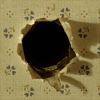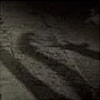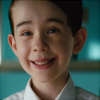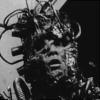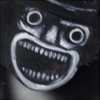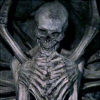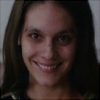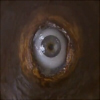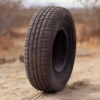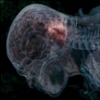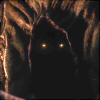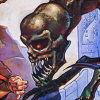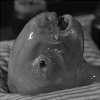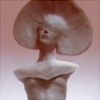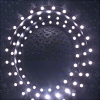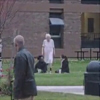
By Jonathan Wojcik
ENTRY 17: IN THE TALL GRASS
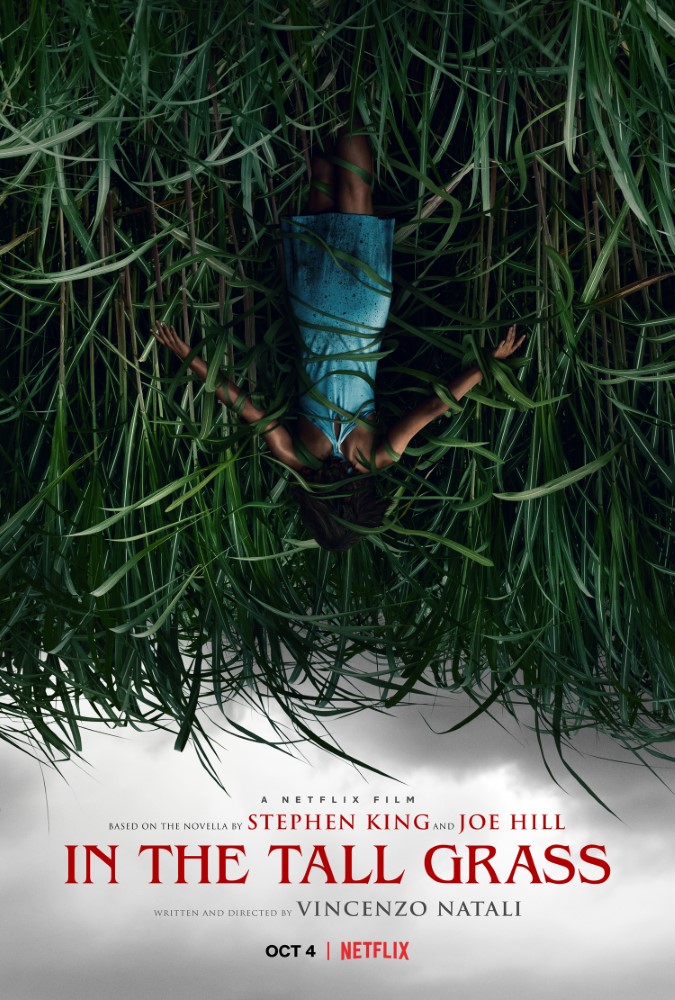
It's our
first entry based on a story by Stephen King! Specifically a novel of the same name co-written by King's son Joe Hill in 2012. The film adaptation was adapted by Canadian director Vincenzo Natali, and was originally released direct to Netflix in 2019, where I believe you can still find it if you happen to have Netflix!
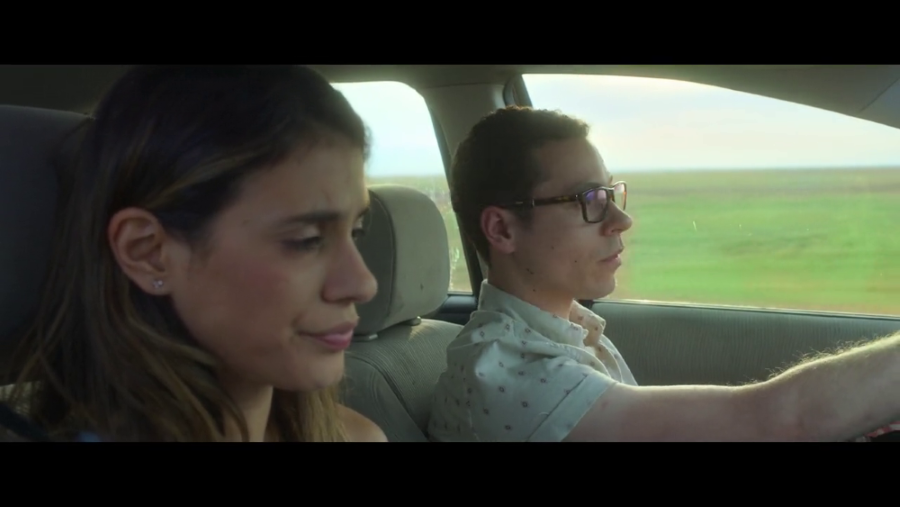
The movie opens immediately on a pair of siblings, Becky and Cal DeMuth (Laysla De Oliveira and Avery Whitted) driving through America's Midwest. Becky is pregnant, and her slightly overprotective brother insists on driving her all the way to California for reasons still undisclosed to the audience. When they pull over by a small church, they hear a child's voice calling from the surrounding field of grass, and fail to notice the unusual number of empty cars gathering dust in a parking lot with no other people in earshot.
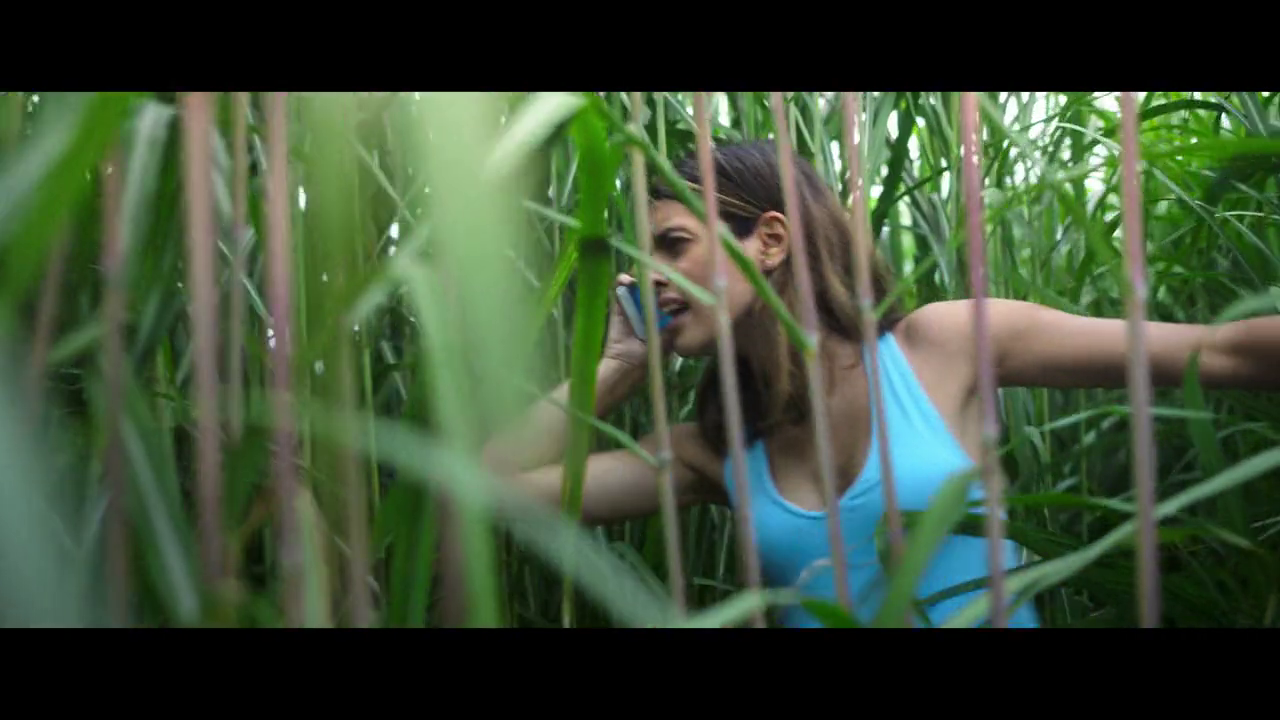
The two are quickly separated from one another as they follow the voice, which doesn't seem to be getting any closer, and it proves difficult for them to find one another even by their shouting or cellular phones. More alarmingly, they can't seem to find their way back to the parking lot no matter how they attempt to retract their steps, and when they try jumping as high as they can, waving their arms above the foliage to try and spot one another...they appear in a wildly different location with every jump.
It is already clear that something impossible is happening, that relative spatial location is not operating under established natural law.
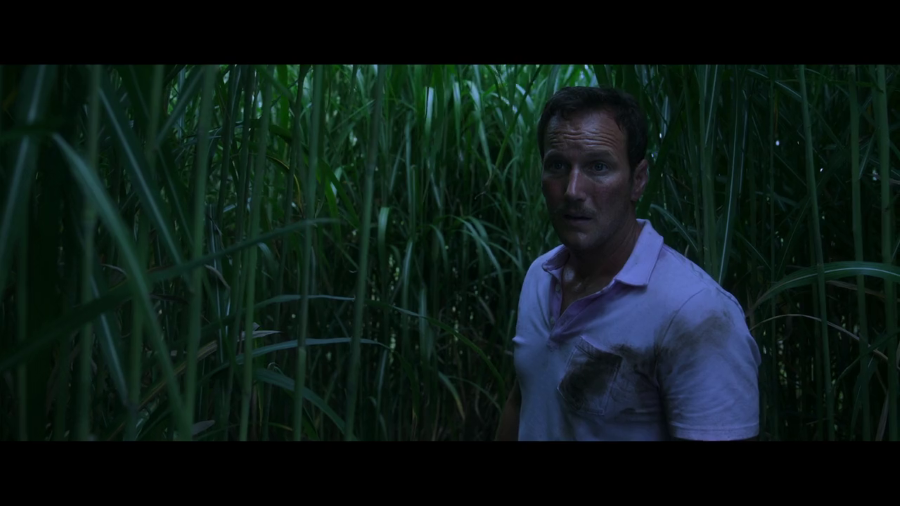
Cal at one point stumbles upon the corpse of a small dog, "Freddy" according to his tag, while Becky finally finds another human being, Ross Humboldt (Patrick Wilson) who is searching for his young son Tobin, the same voice previously heard crying for help. Ross explains that he's been lost for quite a while, and that the moment you lose sight of someone you may never find them again.
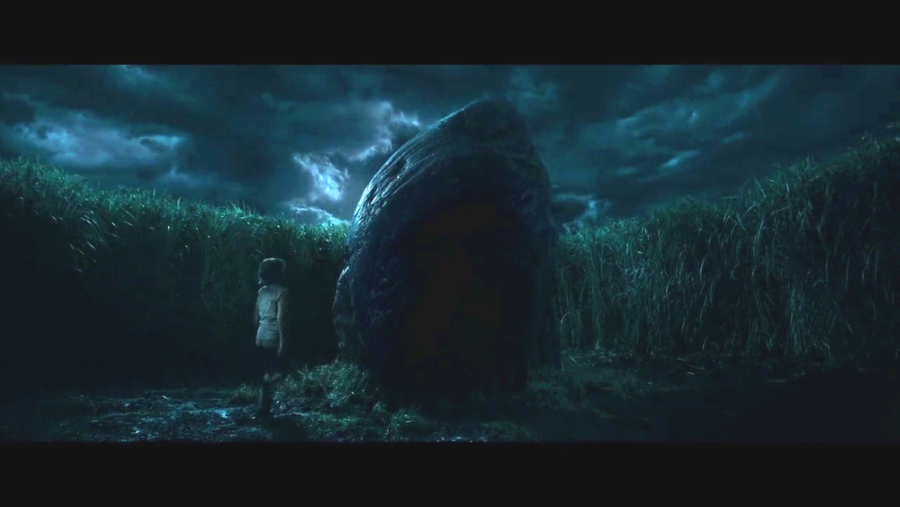
As night falls, Cal finally finds Tobin, who buries a dead crow as he explains that the grass "won't move dead things." He informs Cal that Becky is going to die soon, stating that "the rock" told him so, and leads Cal to what appears to be a massive stone in the middle of a small clearing. He invites Cal to touch the stone, but Cal stops when he hears Becky screaming and runs back off into the grass.
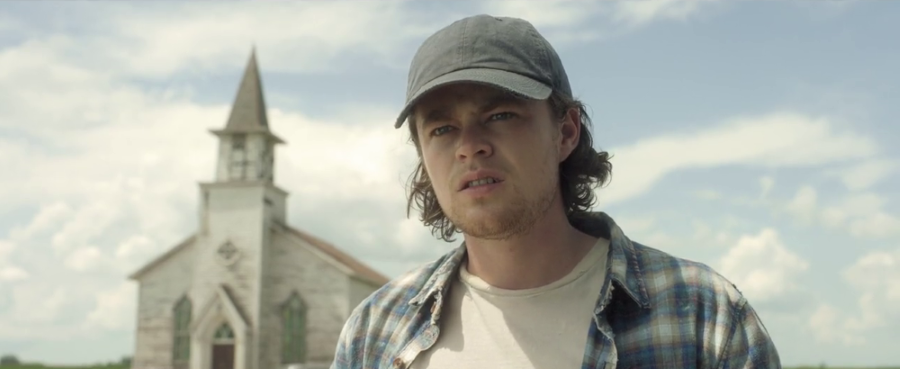
The "next morning" (well...you'll see) a young man named Travis McKean (Harrison Gilbertson) arrives at the church; the father of Becky's child who has been following the two. It turns out that Becky and Cal were heading to San Diego to meet with a couple interested in adopting her baby; Becky had wanted to go ahead and have a baby, but couldn't raise it alone once Travis walked out on her. Now, he's having second thoughts, hoping to catch up with her and tell her he's ready to be a father.
At the parking lot, Travis finds a discarded book signed by Becky, but we never did see her actually dropping it, and he foolishly enters the field to find her. Instead, he finds Tobin, who leads him to Becky's
nearly skeletal remains.
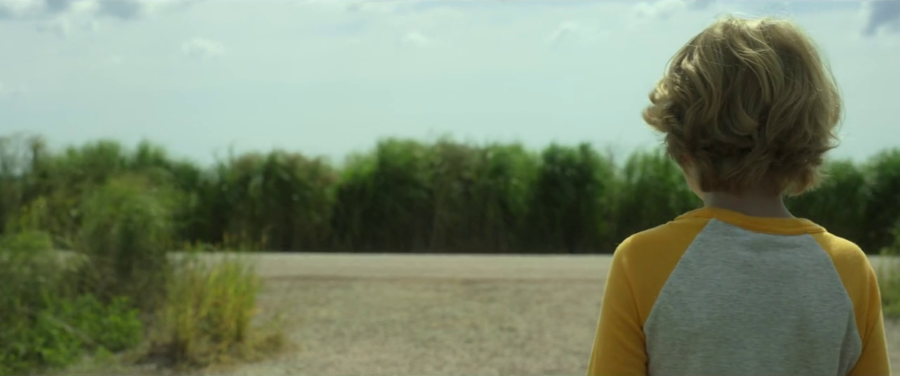
By the time the sun rises, Travis is alone again by his sister's impossibly decrepit corpse, with Tobin nowhere to be found. Travis begins screaming for help and for Tobin, and that's when we see Tobin, his father, his mother Natalie (Rachel Wilson), and their dog Freddy having only just arrived at the parking lot, for seemingly the first time. Tobin hears the voice of an unfamiliar man calling his name from the grass, and the whole family follows when Freddy runs inside, subsequently getting very, very lost, as we had already seen.
After hours of wandering the grass aimlessly, trying to relocate his wife, his son or even his dog, Ross comes across the "stone" and seems strangely transfixed by it.
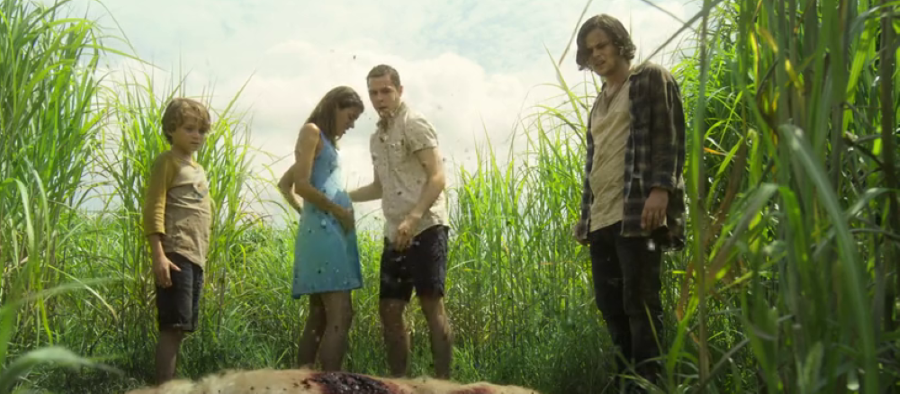
...And then, in the morning, Becky and Cal are just arriving, just hearing Tobin's cries, just beginning to realize how lost they are when they finally hear Travis, who isn't sure how he could have gotten there before they did. Tobin finds the dead body of Freddy, and stays put as the three follow his voice, reuniting for the first time. There, Travis reveals that he already tried to meet up with them in San Diego
two months prior before he went searching the highway for them.
They use Tobin as a sort of human periscope, and he spies a strange building in the distance. By keeping his head above the grass, they seem to be able to approach it with no time/space shenanigans, but are at one point interrupted by a mysterious, garbled phone call; a woman's voice trying to warn them of something, something about "making the same mistake."
As they press on, Becky begins to lag behind and feel unwell, finally fainting as she hallucinates disturbing imagery of the grass seemingly entering her body. She's snapped out of it when Ross finds her and performs CPR. Everyone but Tobin's mother is now present, and while they've lost sight of the building, Ross says he has found a way back to the road. It's just "not a straight line."
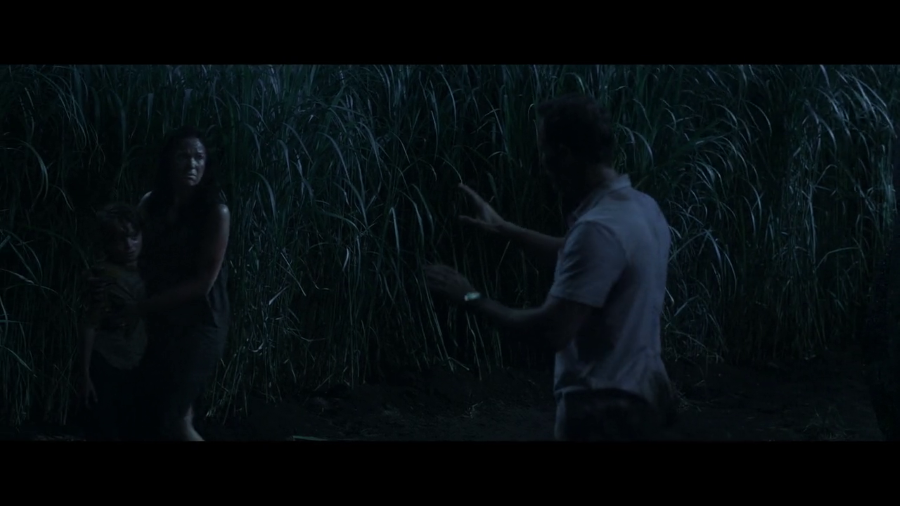
What Ross leads them to is the rock, and when Cal notes the strange carvings on its surface, Ross begins a weirdly passionate spiel about how ancient the object really is. He informs the others that, somehow, touching the stone is how they will find their way out, but before anyone can, Tobin's mother Natalie finally appears, shouting for Cal
not to make contact with the stone, and as she takes her son in her arms...she screams at her own husband to stay away from them.
Natalie implies that Ross has tried to hurt her, warns the rest that he's a liar and says that she's seen Becky's dead body. Ross argues that they're all just confused by their time in the field, that they should all just trust him, and launches into strange, spiritual gibberish about the "rock" as something that's brought them all together for an important reason; something they'll all understand if they'll
only touch it with him. When they continue to refuse, he implies that he's not going to let them get away.
Travis tackles Ross to the ground, Ross still arguing that once he touches the stone, he'll "know everything the grass knows." After easily breaking Travis's arm, Ross apprehends his wife Natalie and begins squeezing her head. He reassures his own terrified child that "it's just flesh, and all flesh is grass" moments before he manages to crush his wife's skull with his bare hands.
As the group flees they meet none other than Freddy, a still living dog, who leads them on a meandering path to the building they'd seen earlier, seemingly an abandoned and rotting convenience store. The moment of peace and quiet is fleeting as they begin to unload their stress and anger on one another, during which we learn that Travis was driven away from Becky largely by Cal's creepy and aggressive possessiveness of her, which Travis even accuses of being an
incestuous obsession. The fight is cut short by the arrival of Ross, but their ensuing retreat, Travis slips off the roof of the building, and Cal allows him to fall. When he catches up with his sister, she can tell something happened to Travis and already suspects it was Cal's doing, running from him into the grass.
Time and space continue to distort, with Ross at one point killing Cal and nearly assaulting Becky before she stabs him with a pair of scissors.
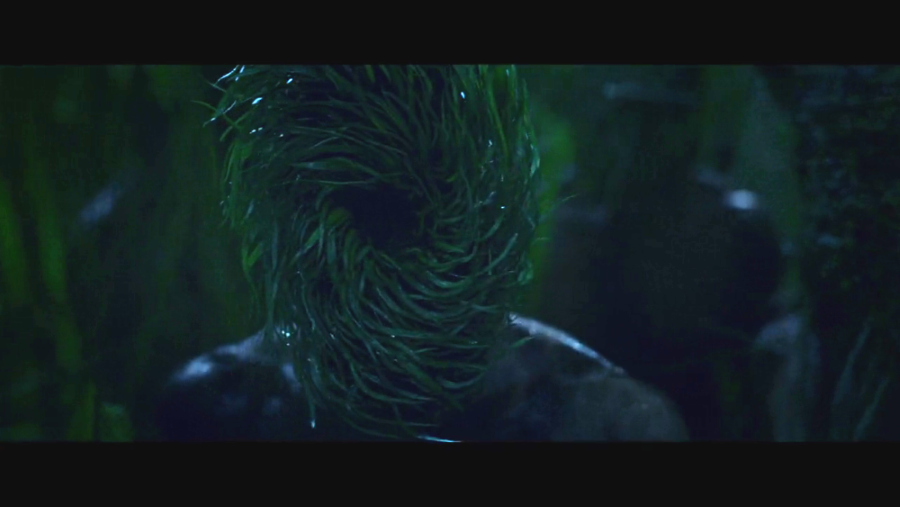
Becky stumbles alone through the muddy field in a heavy rainstorm, until she finds herself encircled by nude figures, chanting in a strange language, their faces obscured by clumps of grass - and when she strikes one in the head, it becomes clear that there isn't any human face under the swirling vegetation. The figures overwhelm her and carry her until she awakens, alone again, in the presence of the stone. She finds her cell phone in the mud, and makes the very same phone call we heard earlier, attempting to warn her past self to try and break the loop she at last realizes she has been trapped in.
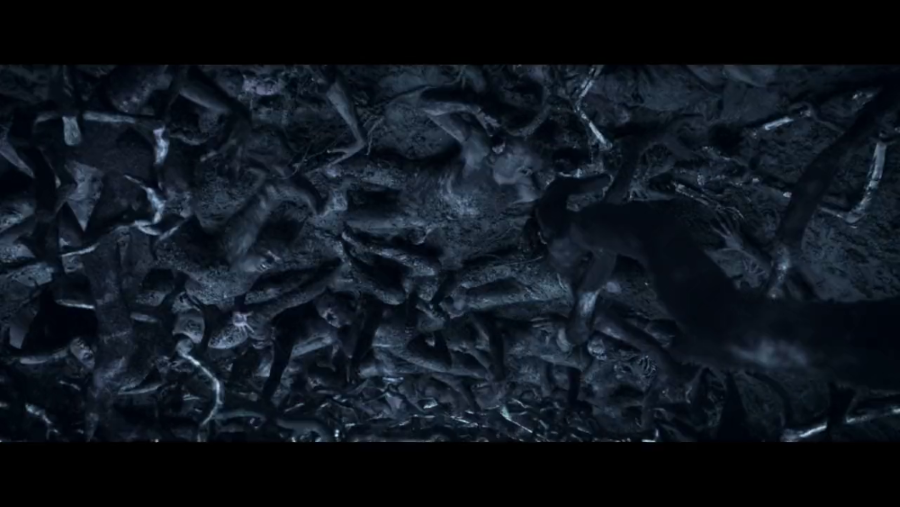
Becky begins to go into labor, lightning intensifying, and the ground around the stone begins to cave in. The stone, it turns out, is not a stone at all, but a horribly ingrown tree, and its roots are intertwined with
thousands, maybe millions of buried human bodies; some rotten away to only bones, but most of them
still moving, writhing and howling to escape.
Becky appears to pass out, and awakens to Cal feeding her the first thing any of them have now eaten in days, which she accepts in her delirious state. It becomes ambiguous as to whether this is real or a nightmare, as well as whether the figure is really Cal or Ross, and whether she is in fact being fed her own child. As this hideous vision ends, we see Travis stumble upon Tobin and Becky's body, which has not in fact given birth yet. A sobbing Tobin tells him he saw his father
repeatedly kill all of them by now, and that it will never stop, with Ross appearing right on cue to try and finish off Travis.
Becky, not quite fully dead yet, uses her last ounce of strength to beat Ross over the head and blind him before she dies for real, giving Travis an opportunity to bash Ross's head into the tree until he finally, finally stops moving...though by now, Travis has nothing left to care about.
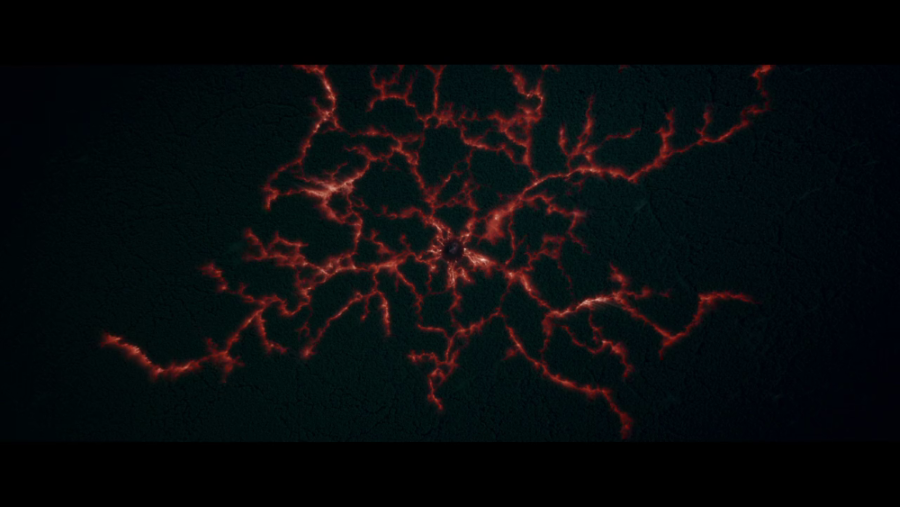
Travis finally submits to touching the tree himself, his mind becoming one with the field. Finally understanding how everything functions, Travis says that he can now never leave, but tells Tobin that he doesn't belong, and that he must stop Becky and Cal from ever entering the field. Travis easily leads Tobin back to the church, back to the beginning scene of the movie, and Tobin pleads with the two siblings
not to follow what sounds like his own voice into the field.
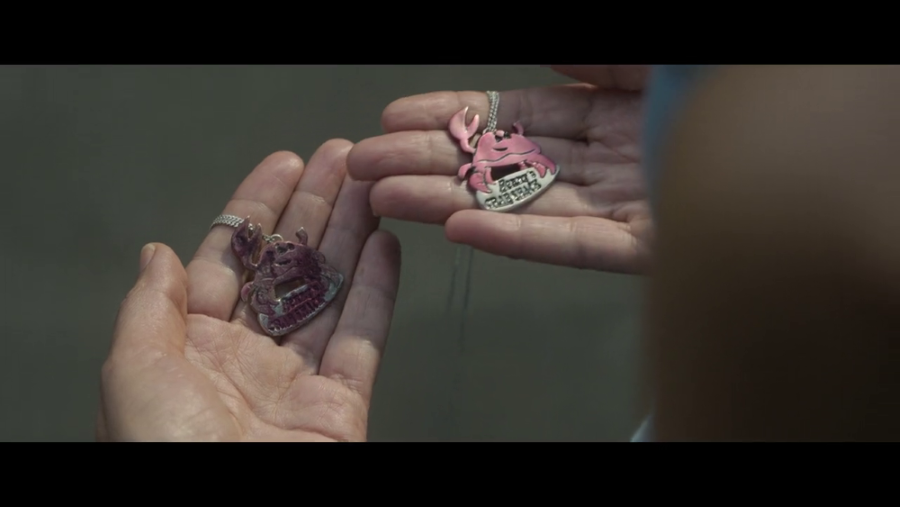
Begging and crying for them to believe him, Tobin gives Becky a duplicate of her own pendant, smeared with blood, and tells her that he got it from Travis. Convinced that there is indeed something deeply wrong with the situation and that the child must know what he's talking about, she stops Cal from entering the grass, and they decide to return back home so they can take the lost child to a police station. She calls off the entire trip to San Diego, second guessing her plan to adopt out her child, and the events of the film are undone...except for Travis, who listens to them leave as he collapses to the ground, to truly become one with the field.
MONSTER ANALYSIS: THE GRASSY FIELD
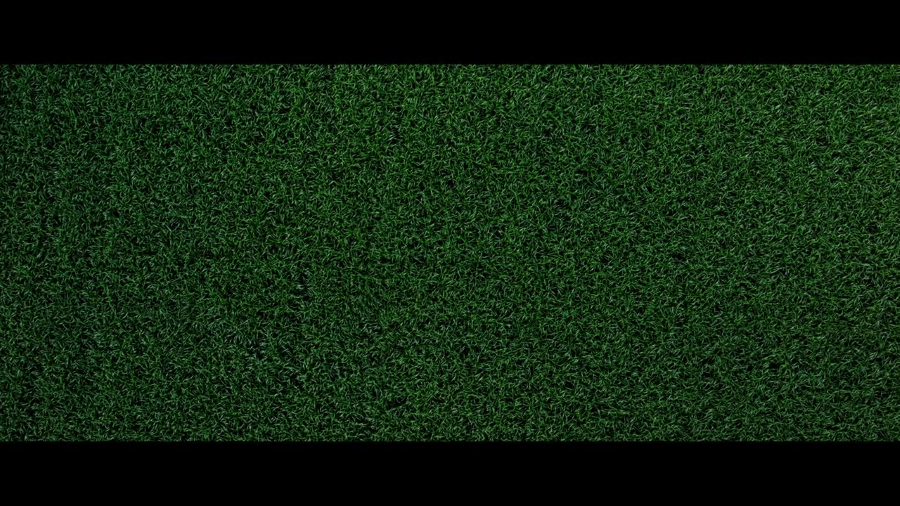
If our previous entry's ambiguous hell-dimension seemed like an abstract definition of a "monster," here we have an unidentifiable extranormal will inexplicably connected to a boulder-like tree, a field of grass, and an unknown number of assimilated humans or animals.
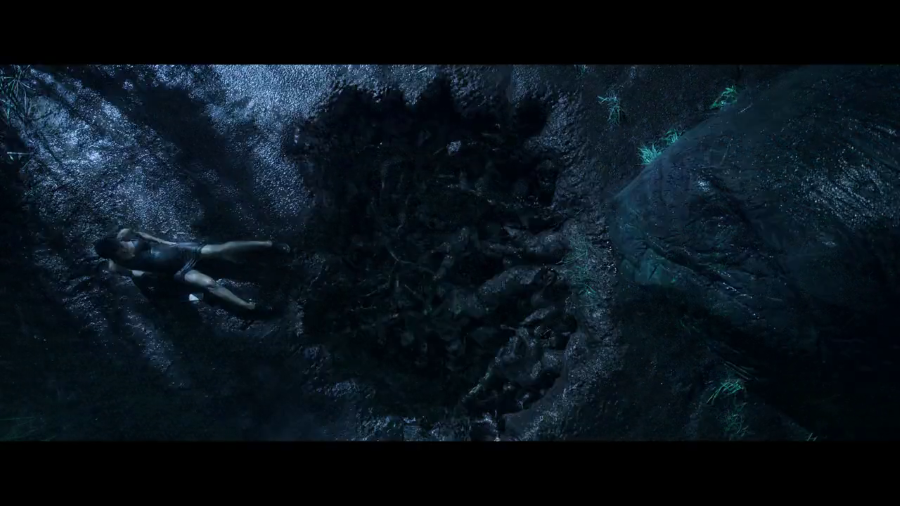
First, the tree: in Ross's early ravings, he suggests that it is older than any known human culture, older than even the glaciers of the ice age, and that it exists at the exact center of the North American continent. We can see that it functions as a hub of activity and communication for the unnamed phenomenon, but it's impossible to say what that really means. Perhaps it's the true, actual "central body" of the cosmic force, perhaps only its equivalent to a "heart" or "brain," perhaps merely a convenient marker of its epicenter or a mechanism that exists solely to facilitate communication with other intelligent beings.
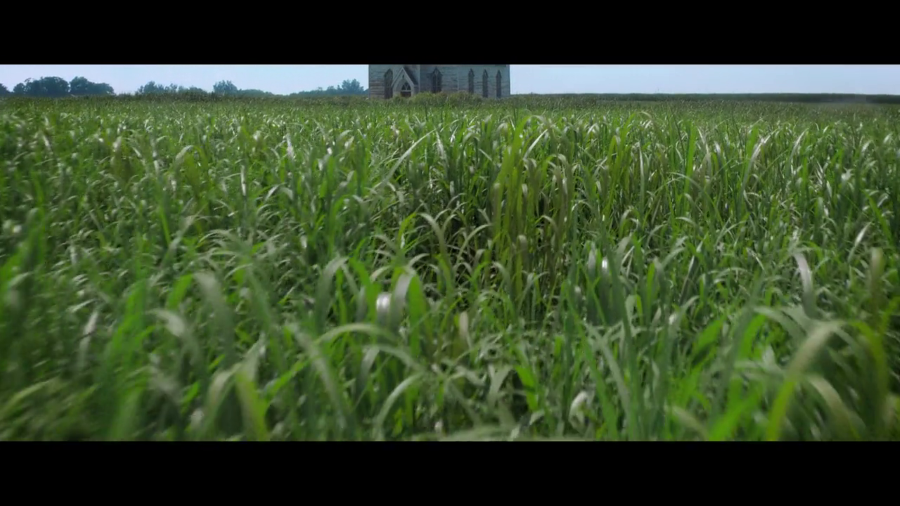
Then, the grass: the entity is capable of manipulating space-time only within the precise confines of the grassy field, to the point that you can even step halfway into the greenery and still be saved, or peer just above the leaves to maintain your grasp of distance and direction. The anomaly effectively behaves like an energy conducted specifically through plant tissue and extending only inches from its surface, but is it
generated by the plant network, or is the "seat of its being" something underground, reaching up through the soil and using plant life to interact with the world? Does its power spread as the grass itself spreads? What happens if the roots of its grass meet those of an adjacent field?
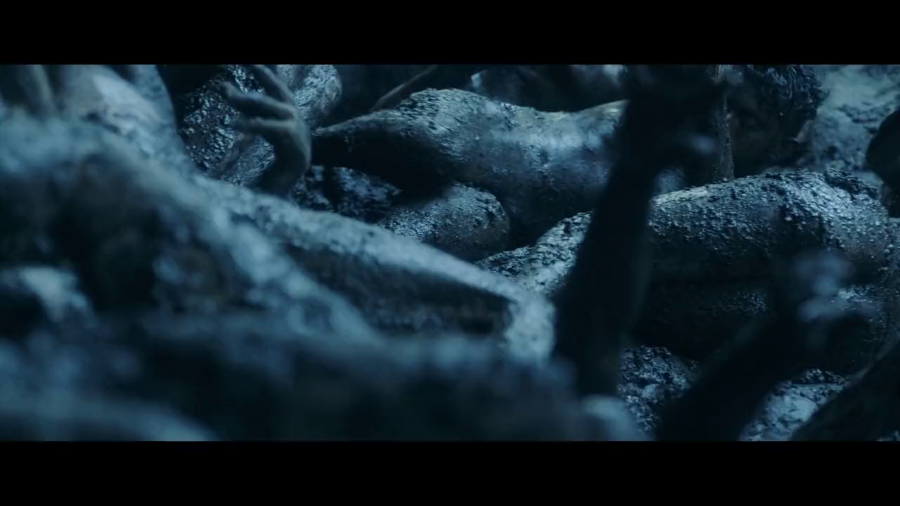
Finally, the human bodies. We see vassals, worshipors or puppets of the enigma who are partially grass themselves, and we see vast numbers of tormented bodies squirming beneath the soil. Either of these might be more delusion than physical reality, but there is an implication that the anomaly's manipulation of space-time may allow it to add human beings to an eternal collective. The purposes of this are unclear, but it seems likely that they serve as extension of its power and intelligence, and that they are kept functionally immortal by their personal temporal loops. If Becky's vision is representative of the reality, then untold numbers of past victims are even permanently "buried alive" in the network, unable to die as their biological functions are endlessly "reset" in space-time.
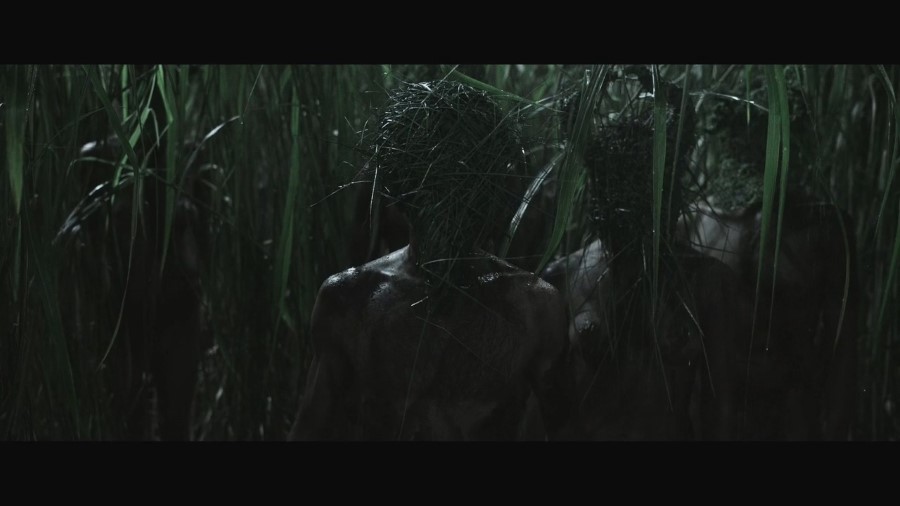
So just how to we define this being, even just to talk about it? I personally interpret it as one massive "nervous system" formed by countless minds connected to one another and to the actual entity by the roots of its flora, a massive symbiosis between both physical organisms and something beyond those definitions, but perhaps since it's also the title of the movie, I find myself thinking of it as the "grass," or at least that the grass is the medium through which it can be said to maintain a "body" in our world. And what does it want, exactly? It seems more than anything that it has the same simple directive as the living things through which it operates; it simply wants to thrive. It does so very, very slowly, obviously once kept better fed by humans who came to consider it a deity, and now its hunger is only seldom sated by those very few travelers who find reason to pay it visit.
The nature of this entity seems like it draws some inspiration from the concept of Schrodinger's cat: that anything
unseen within the grass simultaneously exists in every hypothetical location or state simultaneously, both alive and dead until finally observed, and I find it interesting that a grassy field somewhere around North Dakota is the site of this malevolent ultra-Schrodinger.
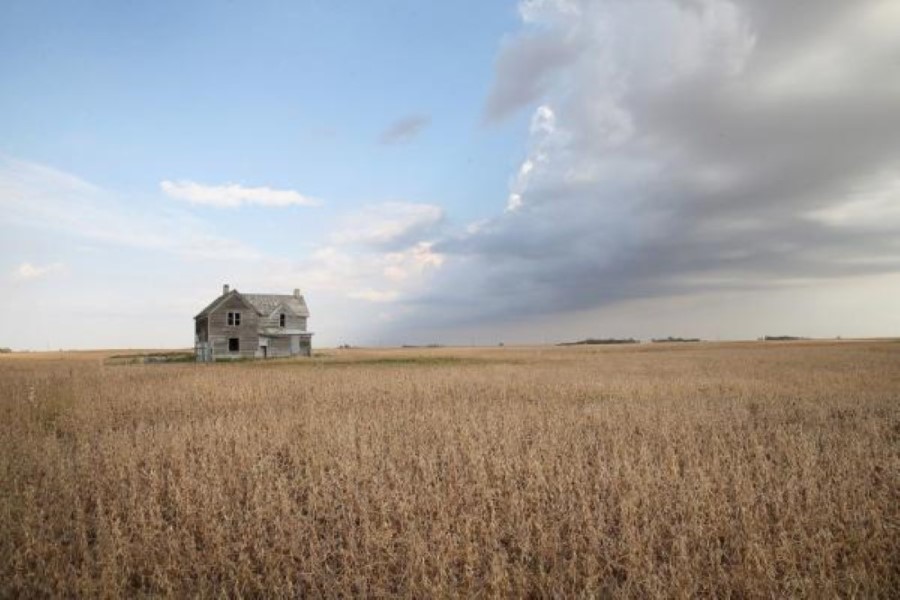
If you've never lived in or driven through the middle of North America, you can never
really grasp the loneliness of it. There are some of you reading this from
entire countries that you could drop into the center of mine without squashing any inhabited cities. A road trip through a U.S. state like Iowa, Kansas or Missouri can mean
days of seeing nothing but the occasional oasis of gas stations and fast food spaced apart by hours worth of travel through the same flat, brownish fields, pockmarked with lonely and decaying family homes like dried-up scabs on the countryside's skin.
More unfortunately, not all of these are abandoned; there are whole communities so remote that they still aren't up to speed with the digital age, ghost towns where only a handful of people do their best to keep a few homes and businesses alive, families so isolated that they could go a year never seeing their closest neighbors, and indigenous reservations that must make do with whatever land is simply no longer desirable to anyone politically more powerful. All on what was, at various points in history, booming farmland or vibrant natural ecosystem, now reduced to an ocean of sun-baked liminal space now seen by more people "just passing through" than have lived and died there since before my grandparents were born.
Sorry if this is sounding preachy for a review of some sort of evil corn or something, but whether it's an intentional subtext of this movie or not, the combination of its setting and the nature of its supernatural forces immediately remind me of those neglected spaces, or anywhere else people live in poverty and isolation; a societal "schrodinger's box" where someone can really die unnoticed by the rest of the country. Many of the people left behind this way may as well be trapped in some kind of "time loop" or "other dimension" themselves as they eke out a living day after monotonous day. Becky and Cal "escape" by the end of
In the Tall Grass, but never know what it was they averted, and can never appreciate how fortunate they are that they can return to their comfy, stable urban lives while countless other, long forgotten people are doomed to rot in a place so overlooked and unremarkable, it doesn't have a name on the map anymore; it's nothing but some tall grass, somewhere, in the middle of "nowhere."
NAVIGATION:
